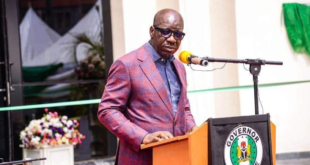The Senior Staff Association of Nigerian Universities (SSANU) and the Non-Academic Staff Union (NASU) have initiated a nationwide strike on Monday, disrupting administrative functions across public universities in Nigeria.
The unions’ grievances include salary discrepancies, non-payment of 2022 arrears, and the government’s neglect of their concerns.
SSANU President, Mohammed Ibrahim, confirmed the start of the strike, which will continue for the next seven days unless the government addresses the issues raised.
He expressed disappointment in the lack of official engagement from the government and questioned the inconsistency in salary payments despite directives from President Bola Tinubu.
The unions had previously issued a seven-day ultimatum, demanding that the government rectify the disparities in payments among university unions.
They warned that SSANU and NASU members would embark on strike action if their demands were not met within the specified timeframe.
Ibrahim also highlighted the non-payment of 2022 arrears to members, including Vice Chancellors, registrars, and bursars.
He cautioned that the strike would not only inconvenience students but also affect critical services such as electricity, water, security, and hostel accommodations.
The discontent among SSANU and NASU stems from the perceived preferential treatment given to the Academic Staff Union of Universities (ASUU).
Despite an eight-month strike in 2022 and subsequent directives from former President Muhammadu Buhari, ASUU received partial salary payments, while SSANU and NASU were overlooked.
Ibrahim criticized the Integrated Payroll and Personnel Information System (IPPIS) office for its dismissive attitude towards SSANU and NASU, despite presidential waivers issued in their favor.
He emphasized the need for equitable treatment within the university system while condemning the government’s apparent neglect.
As the strike continues, the impact on the education industry and university students is expected to be significant, with essential services being disrupted and administrative functions grinding to a halt.
The government’s response to the unions’ demands will be crucial in determining the future of the strike and the overall functioning of public universities in Nigeria.
Subscribe to the Advocate News letter and receive news updates daily in your inbox.
 Advocate.ng Latest news update on politics, entertainment, sport and more
Advocate.ng Latest news update on politics, entertainment, sport and more




